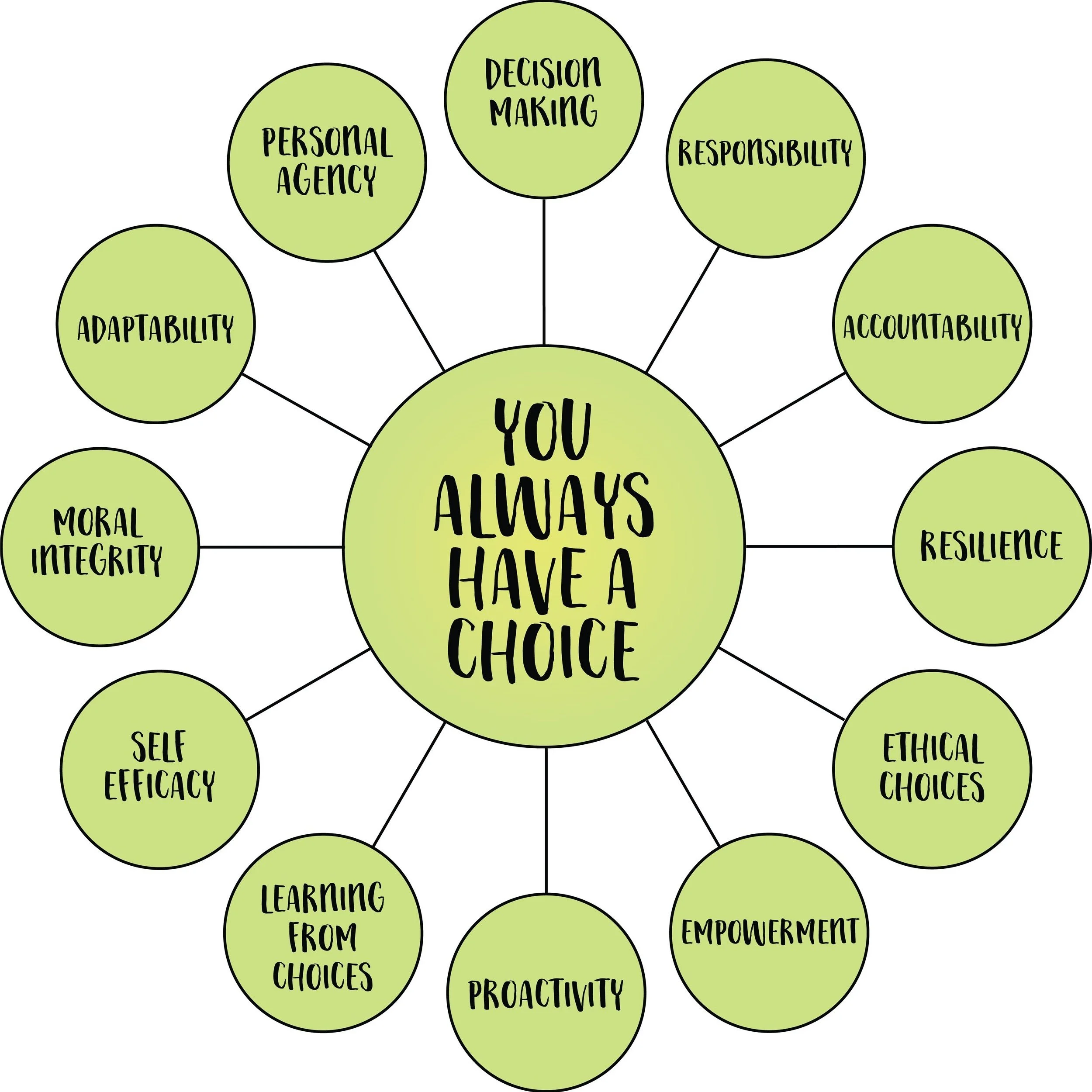YOU ALWAYS HAVE A CHOICE
“Changing our habits, changing our methods of influence, and changing the way we see our no-control problems are all within our Circle of Influence”
Be Proactive
Being proactive is an essential characteristic for an Executive Assistant and one that is looked for on many resumes. Sure, being proactive in the workplace includes taking the steps to plan for the unexpected, calendar management or to get that task done. Covey in his book The 7 Habits of Highly Effective People, refers to Habit 1 ‘proactivity’ as taking the initiative in being responsible for our own lives, where our behaviour is a function of our decisions, not our conditions. Where we take the responsibility to make things happen and choose appropriately in how we respond to stimulus.
As an EA working in Education, I understand how easy it is to get caught up in the noise, focusing our time on negative energy that we have no control over. And we don't always get it right! It can be easier at times to empower what’s out there in our external environment - to let it control us. As Covey says, the paradigm here is ‘outside-in’ when we think the problem is out there - it is the thought that is the problem.
The purpose of our school and our roles within them
Schools are dynamic, energetic and vibrant places, whilst preparing young people for life. There is positive energy in schools when we work together with students at the heart of our work. At the end of the day, we are all there to contribute and support student learning and outcomes. Being an EA in an educational setting can be very rewarding, with the opportunity to lead, shape and influence our school culture. We are also often pulled in lots of different directions, we make hundreds of decisions, we have diverse audiences and, due to the nature of the role, it can be lonely.
In understanding the purpose of our school and our place within it, is the first step to proactivity. When we apply the circle of influence to our decision making and actions we apply an inside-out approach with our choices, character, and motives. In doing so, we are aptly able to represent and support our senior executives at the highest level, to be the strategic business partner they require. Using energy wisely within the right circles can foster and enhance a culture of collaboration, support and growth for ourselves, the Principal-EA working partnership and ultimately for the school.
The circle framework
Covey models a ‘circle framework’. The first circle is the circle of concern and the second, the circle of influence. These circles provide a platform to reflect on where we focus most of our time and energy, to discover the degree of our proactiveness!
The circle of concern is in fact a circle of no concern! This circle is filled with things which we have no involvement mentally or emotionally. Reactive people sit within this circle, people who focus on the negatives, external and environmental problems - situations they have no control over. In contrast the circle of influence encompasses concerns which we can control and do something about. Proactive people focus their efforts on increasing their circle of influence, with their positive and enthusiastic energy. These people accept the responsibility to use their influence effectively.
When you spend too much time in the circle of concern you are actually shrinking the circle of influence. In working within a circle of influence, and focusing on your own paradigms, you become more self-aware.
You create a positive energy not only for yourself, but you influence everyone in this circle. This is not to say never worry or care about the circle of concern, but just to be mindful of the energy used in this space. Covey goes into more detail in this chapter about two things that require deeper thought when analysing our circle of concern - that being consequences and mistakes. Covey says "while we are free to choose our actions, we are not free to choose the consequences of those actions".
You always have a choice!
Remember you always have a choice in how you respond to stimulus - will you be proactive or reactive? Do you take responsibility and initiative or play the blame game, focusing on the negative energy?
I personally found learning and writing about Habit 1 to be a great reflective exercise on what areas I need to focus more of my energy. Perhaps this blog might also create some awareness for you when navigating the challenges and opportunities that come your way during the school day.
To conclude, here are a few proactivity actions as we build on our circles of influence.
Remind yourself of your school's purpose and in turn your own purpose within it.
To accept that things outside of your control.
Focus your time and efforts on the things you can have a positive influence over.
Extract yourself from the noise and negativity energy - the uncontrollables...
Listen more.
Be giving of our time - it doesn’t have to be long, perhaps a smile, to say hello as someone walks by your office.
Be courteous and respectful - demonstrating kindness can make all the difference to someone's day.
Reference: Stephen R. Covey, The 7 Habits of Highly Effective People
If you’re feeling a bit isolated in your role, and would like to benefit from the support and learnings from a group of likeminded Education Administrative Professionals working with Senior Educational Leaders in schools - consider joining our community!


